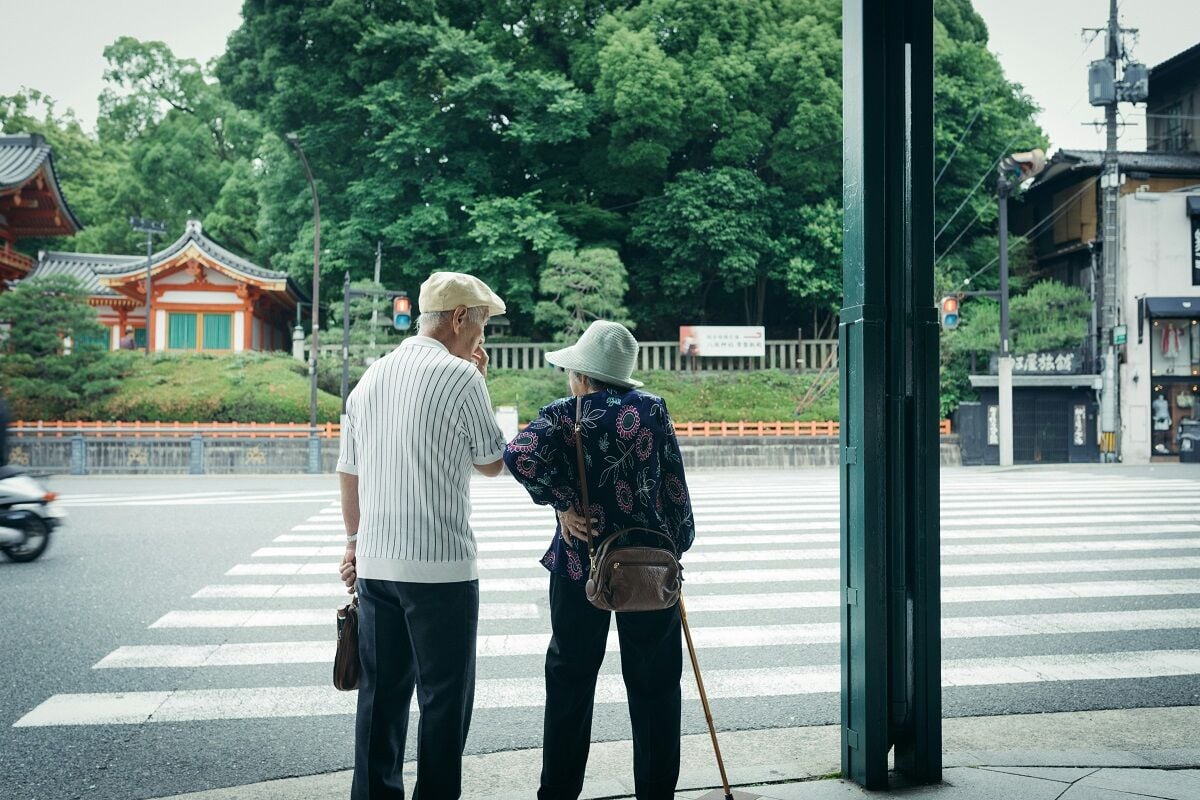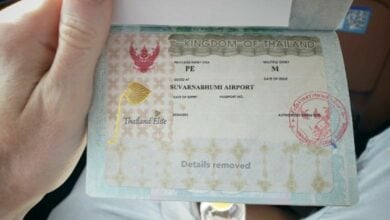Top 14 troubles you will find during retirement in Thailand

The transition into retirement can be an intricate process, particularly if contemplating spending your later years in Thailand. Crafting a thorough strategy for this subsequent stage of life is crucial to facilitate this changeover, and vigilance of potential hurdles is vital to preserve balance during these years.
In the domain of financial investment, for example, one may encounter numerous difficulties. Each investment intrinsically possesses a certain degree of risk, and understanding this risk is indispensable to guarantee a steady income flow throughout retirement. As your investment portfolio broadens, it becomes essential to match your investment choices with your risk tolerance.
Another potential hurdle may arise from cultural and legal disparities. From handling liability in accidents to interacting with local law enforcement, anticipation and preparation for these situations can facilitate a smoother retirement transition in Thailand. We encourage you to continue reading as we explore these challenges further, offering a thorough guide to the top 10 issues you may potentially encounter during retirement in Thailand.
Common visa complications
When considering retirement in Thailand, one must prepare for possible visa complications. Let’s delve into the specifics.
1. Retirement visa requirements
Starting the retirement journey in Thailand means understanding the need for a Non-Immigrant O Retirement Visa, often just called a Retirement Visa. This type of visa allows retirees over 50 to legally stay in Thailand for one-year periods. It’s fairly easy to obtain, especially if you meet the age requirement. Furthermore, compared to most other visas, this one requires less paperwork. The main requirements are an age of 50 and above, along with a balance of 800,000 Baht in your bank. Remember not to treat this as a guarantee, since the requirements and procedures could change.
2. Long-term stay issues
If you’re thinking of extending your stay past retirement, be mindful of additional hurdles. For example, if you’re married to a Thai national, the Marriage Visa could seem like an appealing option. This visa allows you to work legally and has a financial requirement that’s half of the Retirement visa, at 400,000 Baht.
However, proving the legitimacy of your marriage can be a paperwork-intensive process. Be prepared with documentation like photographs of you and your spouse together, your marriage certificate, a map of your home, and additional evidence of your relationship. Also, Thai immigration might visit your home as part of the application process.
Financial concerns

Financial security remains one of the primary concerns when planning a retirement in Thailand. Despite the lower cost of living compared with Western countries, certain financial aspects demand serious consideration.
3. Cost of living adjustments
Life in Thailand might initially appear relatively low-cost. However, you might experience unexpected cost-of-living adjustments. From the escalating costs of healthcare to yearly inflation, budgeting for retirement in Thailand demands a dynamic approach. Key aspects to consider range from daily expenses, like food and transportation, to larger investments such as real estate. For example, a retirement budget could escalate due to increased expenses in healthcare with age. High-quality healthcare services in Thailand often come at a premium price and they tend to increase annually.
4. Dual pricing system
Another crucial financial aspect to take into account is the dual pricing system, a prevalent practice in Thailand. It’s a system that applies different prices for locals and foreigners. Tourist attractions, local markets, and certain services are examples where this differential pricing is apparent. This system might significantly influence your retirement budget. It’s advisable to take some time to understand the local market rates to avoid overpaying for goods and services. Remember, knowledge is the best defence against overpriced fees.
Healthcare challenges

Navigating healthcare hurdles forms a considerable part of retirement planning, especially for retirees relocating to international destinations like Thailand. Let’s consider two significant aspects: healthcare service access and insurance mandates.
5. Access to healthcare services
Retirement in Thailand can come with a host of healthcare challenges, foremost among them being accessibility to healthcare services. Differences in language, treatment styles, and practices can cause a disconcerting experience for many retirees. So, navigating this unfamiliar territory becomes crucial. Picking up basic medical terms in the local language, understanding the appointment procedure, and knowing your way around local pharmacy etiquette can smooth out some of these challenges.
6. Insurance requirements
Thailand has specific health insurance stipulations for long-term visas. For instance, the LTR visa and the OX visa necessitate certain insurance prerequisites. In the case of an OX visa, your insurance plan must cover a minimum of THB 400,000 (~11000 USD) for inpatients and THB 40,000 (~1100 USD) for outpatients. Further, the policy must include coverage of COVID-19 treatment and be issued by a licensed insurance company operating in Thailand. Fulfilling these insurance parameters ensures a safety net in case of health emergencies.
Cultural and social adjustment

As you journey into retirement in Thailand, keep in mind that cultural and social factors can greatly impact your quality of life. This involves not just adapting to a new social environment, but also understanding the nuances of the Thai culture. Let’s delve into some areas that might need your attention.
7. Language barrier issues
Navigating through the labyrinth of a new language could be your greatest challenge upon retiring in Thailand. Thai language, quite alien to the English-speaking world, demands an understanding of five distinguishing tones, each potentially changing the meaning of a word. For instance, a change in tone can turn a harmless word into a potentially offensive term, creating embarrassing situations or misunderstandings. Acquiring a basic knowledge of Thai can be immensely helpful in these circumstances. Engaging in a Thai language course or hiring a language tutor serves to ease this transition.
Relationships and community
Building relationships and integrating into the Thai community forms a crucial part of acclimatisation. Thais are known for their warm hospitality and friendliness, providing a welcoming environment for foreigners. However, understanding the underlying social etiquettes and norms aids smoother relationships. Thai people highly regard respect for their monarchy, religion (Buddhism), and elders. Don’t be surprised when you see locals halting to play the national anthem twice a day; It’s part of their DNA. Similarly, offensive gestures or words against the monarchy or religion might invoke stringent legal actions.
8. Property ownership restrictions
Navigating property ownership restrictions presents a hurdle during retirement in Thailand. Thailand’s laws limit foreign property ownership, proving a challenge to overseas retirees. Be aware, legal stipulations essentially prohibit foreigners from owning freehold land. However, there exist legal routes for real estate acquisition. Explore obtaining a long-term lease on land, typically extending for an initial 30 years. Under this arrangement, you lease the land but can own the property built upon it.
Legal and bureaucratic hurdles
As you embark on the journey of retirement in Thailand, expect to encounter legal hurdles and paperwork inundations. The Thai system has a significant leaning towards bureaucracy, and a proper understanding of the process can ensure smooth navigation through the red tape.
9. Thai paperwork and procedures
Thailand adores paperwork. Even for the simplest tasks, expect a flurry of documents and forms. At first glance, you might be overwhelmed by the required paperwork. Whether it’s applying for a visa, opening a bank account, purchasing property or even going through a traffic violation, you’ll need to sign, stamp and submit countless forms. Computers and modern banking have yet to diminish this trend. Developing efficient document management skills can help you manage the paperwork effectively.
10. Legal services accessibility
Understanding Thai laws and regulations can be a considerable challenge, particularly if you’re not fluent in the Thai language. If you find yourself involved in any legal situation—from property disputes to visa issues—consider hiring a professional to help. Perhaps you are dealing with a traffic accident or engaging in some form of legal transaction; in such cases, it’s advisable to get someone who speaks Thai, like the local Tourist Police or a knowledgeable acquaintance, to help you wade through potential problems. While confrontation might seem a viable option in certain circumstances, it seldom yields favourable results in Thailand.
Transportation and driving

11. Obtaining a driving license
Embarking on the journey of securing a driving license in Thailand involves stepping into a world abundant in paperwork. Thais and their bureaucratic system have an affinity for documentation that may perplex you. Prepare for the creation of paperwork even for the simplest tasks. While the introduction of modern banking and computing systems has streamlined many processes, the concept of the ‘paper trail’ remains deeply ingrained in Thai society. Do not get caught off-guard by the two Thai nationals required to act as your guarantors; relatives, however, are not deemed acceptable for this role.
12. Road safety concerns
Navigating Thailand’s roads presents its unique set of challenges, and sadly road safety becomes a prominent concern as metrics indicate an unacceptable toll. Crucial seasons such as Christmas or New Year, and Songkran, which marks the Thai New Year, witness a considerable rise in road accidents. Despite the government’s efforts and law changes, drunk driving and high speeding remain the two main culprits behind the overwhelming number of incidents. The laws on alcohol advertising border draconian, yet the important message around driving under the influence struggles to make its mark.
13. Environmental and climate considerations
Experiencing retirement in Thailand includes navigating the country’s environmental and climate traits. One key consideration, Thailand’s tropical climate, can challenge those unaccustomed to it. The government generally sees two major seasons: hot and humid, extending from March to June, and rainy, engulfing the land from July to October. However, from November to February, a milder and more favourable climate prevails, making it an ideal time for retirees to explore the country’s natural beauty.
Remember that adapting to these weather fluctuations can take some time, especially the humidity. It’s common for people from temperate climates to find the intense heat and humidity discomforting initially. Frequent hydration, shade-seeking, and proper sun protection become the main elements in the routine.
14. Technology and communication barriers
Staying connected with loved ones abroad is crucial during retirement, but retirees might face hurdles in adapting to technological systems in Thailand. Whether it’s navigating through language barriers in customer support for internet services or setting up online banking, retirees unfamiliar with Thai systems and apps may find it daunting.
Additionally, internet service in rural or less developed areas can be unreliable, making it difficult for retirees to maintain seamless communication or manage online finances. Learning to use local apps and services may require time and patience, which can become a frustration for some.
Achieving life satisfaction and quality enjoyment in retirement involves maintaining good health, fostering strong relationships, engaging in fulfilling activities, and achieving financial stability, all of which contribute to a rewarding and contented post-career phase,
































